The Nature Effect
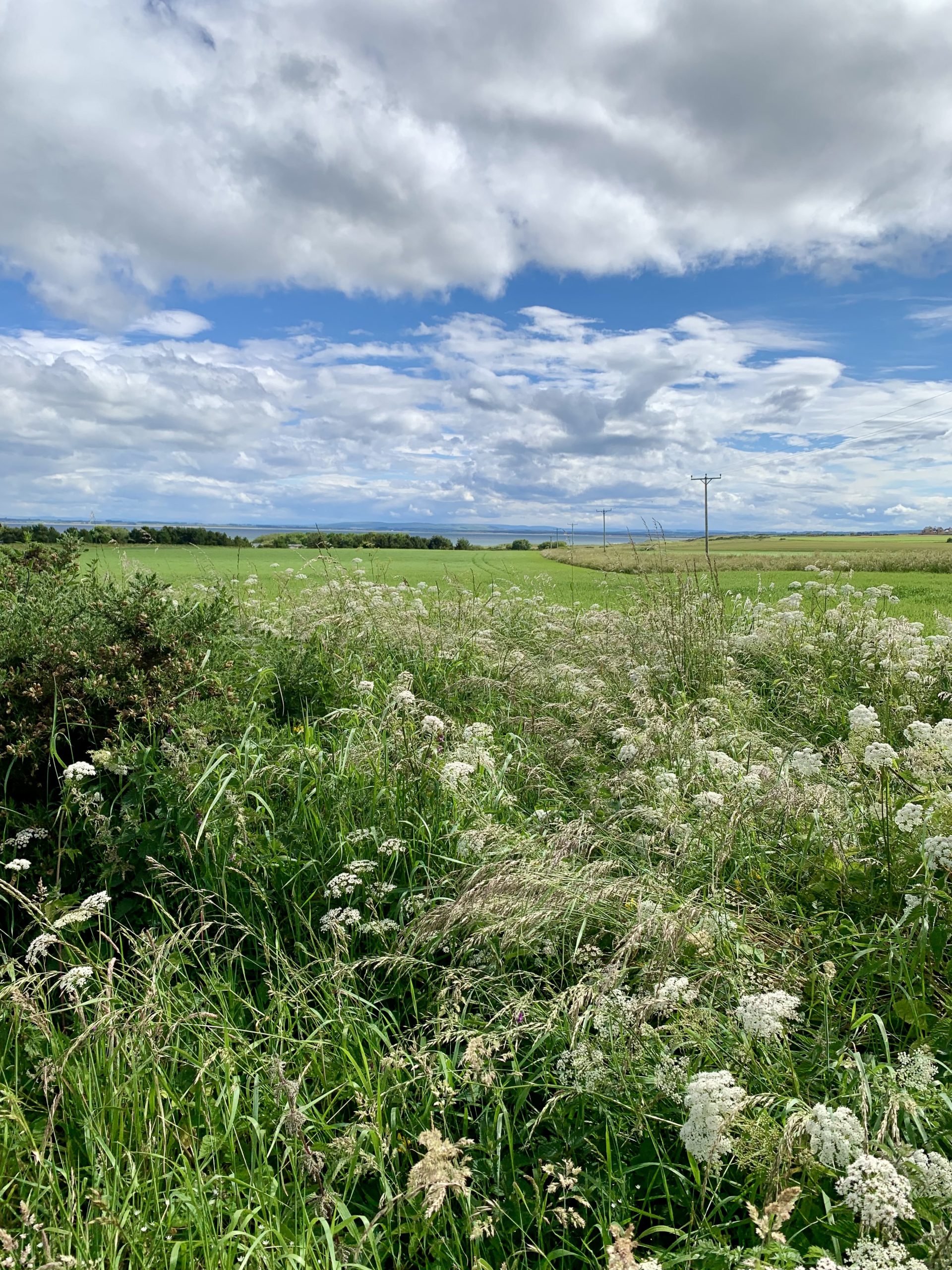
‘Perhaps nature really does affect you that way.’
A comment scrawled in red on my second-year English essay. I can’t
remember what the direction had been, but I’d chosen to write about my
love of nature. The piece was descriptive, I remember that much. And I
remember the hurt at exposing myself and being rebuffed.
‘Clouds can’t collide’
They can and they did. I’d seen them. Laying on my back in Richmond Park in the summer, starring up into a blue sky, warmed by a forever sun;
cumulus, blousy and billowing, clumping together and puffing into bigger
shapes. I’d watched them for hours, untroubled by time or the pressing
urgency to be anywhere else. I liked Mrs J. I thought she was nice. She was generally encouraging, apart from my nature essay and when I wrote ‘i’ instead of ‘I’. Her red scrawls were injurious to a young city girl, who loved the outdoors.
Age 12, I didn’t know there were ‘nature types’. I simply loved being outdoors: kicking a ball about in the rec (the municipal recreation ground behind our row of terraces), mucking around on the mini-golf without paying, when Bill the park keeper turned a blind eye, scuffing through the half mile long pile of fallen elm leaves, squelching on the muddy football pitches and much later, eyeing up the older boys playing football there. For now I was still playing in the swing park, looking for minnows and frogspawn in the Hogsie (the local river, the Hogsmill) cycling to Richmond Park or Box Hill, further afield (and strictly forbidden) or spending the day at the open air pool – two bus rides away – unsupervised.
I’m a lifelong outdoor swimmer. When I was a kid, it was in open air lidos,
Frencham ponds or the sea, on holidays or summer weekends. Scary and
exiting in equal measure, the sea is my true love. Strange, perhaps for a girl who spent all her formative years in outer London, almost within spitting distance of the city. Perhaps Mrs J was a city girl too and felt threatened by the natural world, or uncomfortable with my intense feeling about it. I didn’t think to ask her. I was 12, she was a teacher. Teachers were always right back then. I don’t think I ever wrote about nature again in school. It had been OK in Junior school, you could write about autumn leaves and animals and going on walks. Secondary school seemed to have a whole different dynamic, where intense feelings were ill-advised and academic excellence ruled.
For someone who loved the outdoors so much, I loathed being outdoors for games. Physical Education (PE) highlighted my clumsiness, my lack of
speed, my dislike of team sports, my unpopularity. Cross county (not
country at all – a circuit around the local housing estate), hockey, netball – I
hated them all. Our all-girls school wasn’t enlightened enough to offer
football – I might have liked that. I enjoyed 5 aside on the odd occasion I’d
played at youth groups and Girls Brigade. ‘Outside’ at school meant
nightmarish tarmac that grazed the knees and failed to soothe the soul in
any way.
In 6th form we studied the poet, John Keats. I was amazed how much he
eulogised nature – autumn and nightingales amongst other things. Thomas Hardy wrote lengthy descriptions of the countryside in his novels and even Shakespeare wrote about nature and the nature of beauty. Clearly writing about nature wasn’t entirely taboo, although maybe you had to be a dead white guy to get away with it.
Reader, I never lost my love of nature. I left the city when I was 19,
returned briefly, then moved away again when I was 26, never to return. I
live in the far north of Scotland, 400m from the North Sea. I feel at home
here in a way that I never did in the city, with people and buildings and
nowhere to stop and stare. We were actually pretty lucky as kids to have so many green spaces near us; now my junior school playing field is built over with houses and though the recreation ground is still there, a large chunk of it is a ‘tennis park’.
I believe that young people today are encouraged to write about nature. I
hope so my way. I’m certainly encouraged by the young activists and writers such as Dara McAnulty. I’m sure there are many
others. Nature writing is a ‘thing’ now, a genre in its own right. Thank
goodness we have people who are affected by nature and can communicate that through writing.
Meanwhile, this city girl, who lives in the Scottish Highlands, continues to
be impacted by the beauty and majesty of the natural world. She grieves
for its losses and triumphs in the wins. She is soothed by the sea, in mind
and body and still watches clouds collide. Aren’t we all part of the natural
world, wherever we live? We need the writers and poets, the activists and
dreamers to protect her – to protect us.
Author
webadmin@debbiemross.co.uk
Related posts
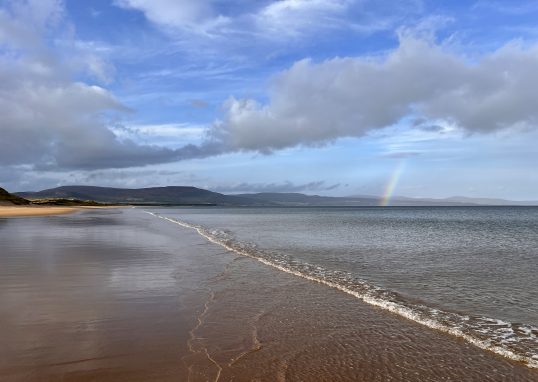
Writing Rainbows
I have always loved rainbows. When I was a teenager I had a rainbow poster, and when I went to college I...
Read out all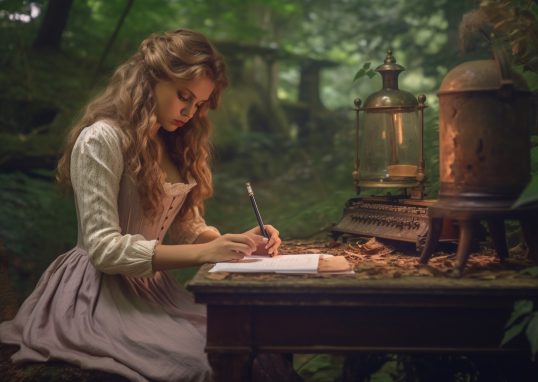
A Month of Poetry
I haven’t done it every day, but aiming to write 30 poems in 30 days is an interesting challenge to try, and seeing other peoples’...
Read out all
Musings on a Writing Life
Ten years ago I wouldn’t have had the nerve to write about writing, despite being a life long writer. I don’t make...
Read out all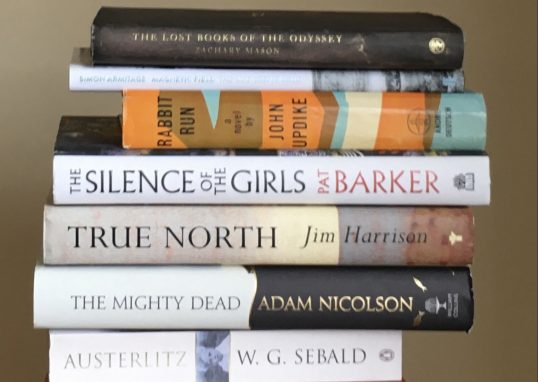
Every Writer Should be a Reader
It is possible to be a writer without ever having read a book, of course it is. Some people don’t have access to...
Read out all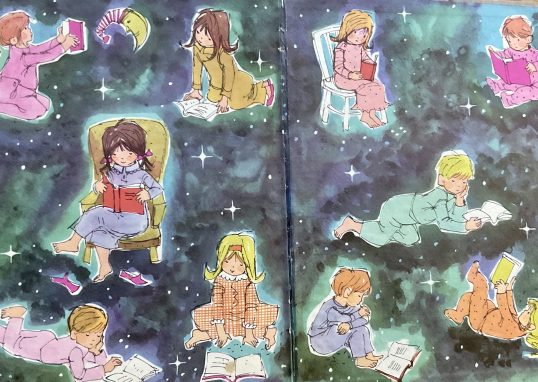
We Are All Storytellers
I am privileged to know a lot of creative people: writers, artists, musicians and makers of all sorts. My belief is that we...
Read out all
Progress of a Novel
Words written so far this week: 500. Don’t laugh, or pity me for that matter. That’s fine. It’s something more than nothing...
Read out all